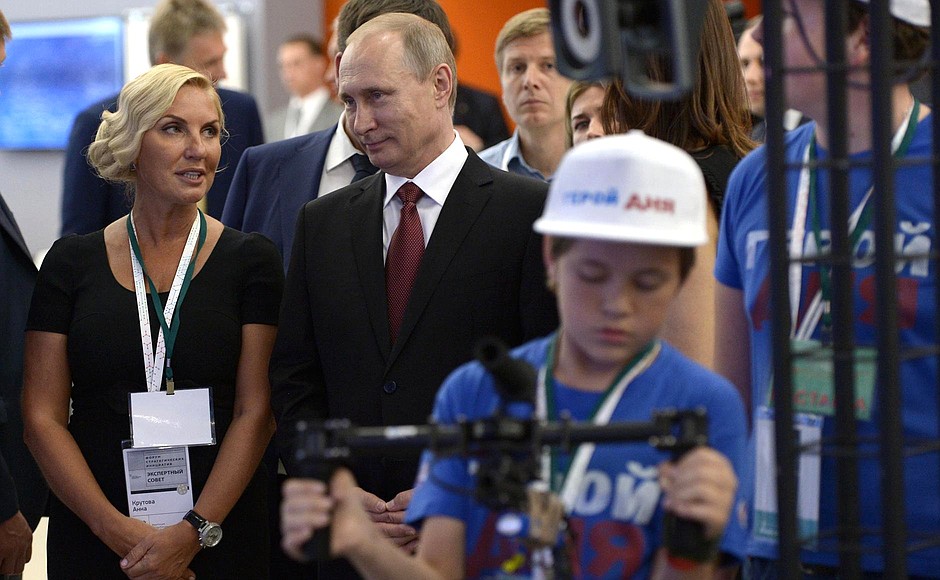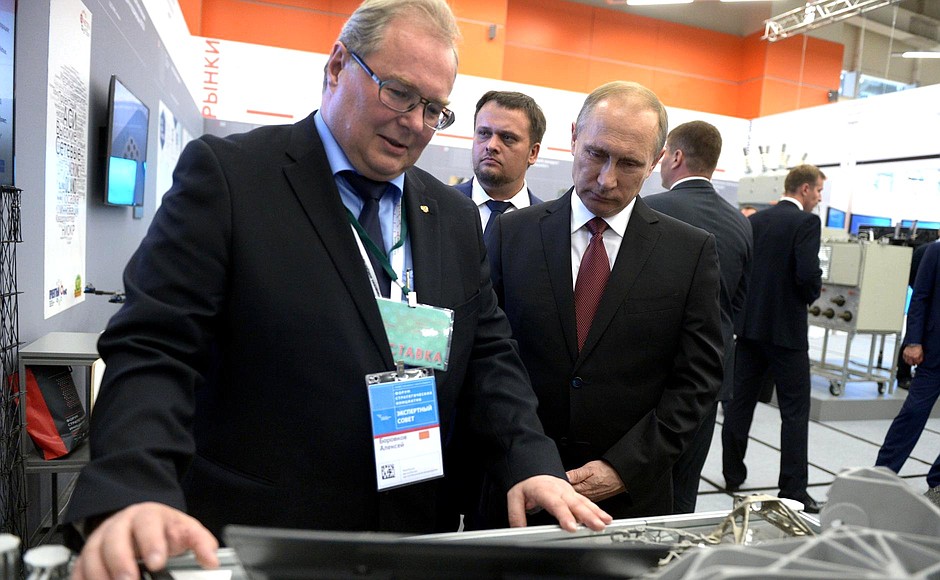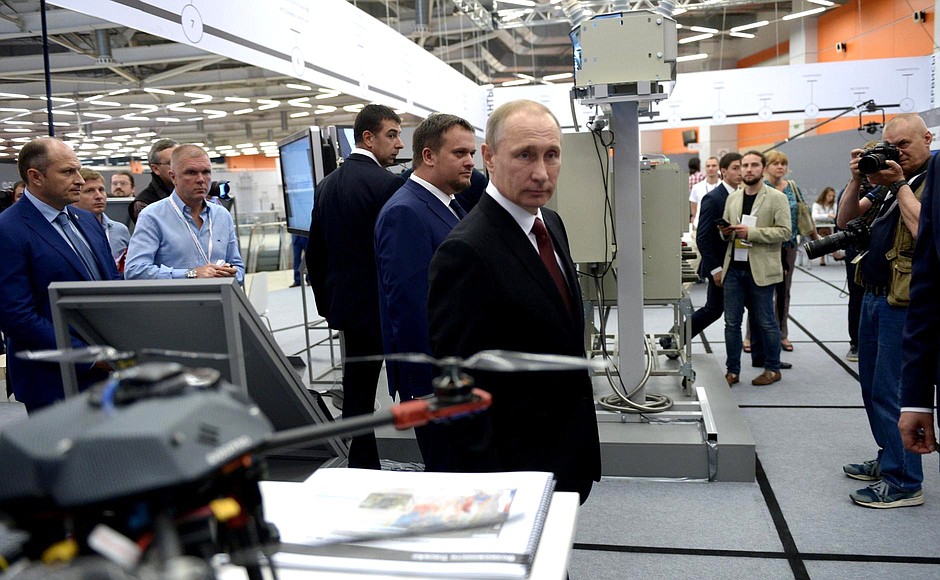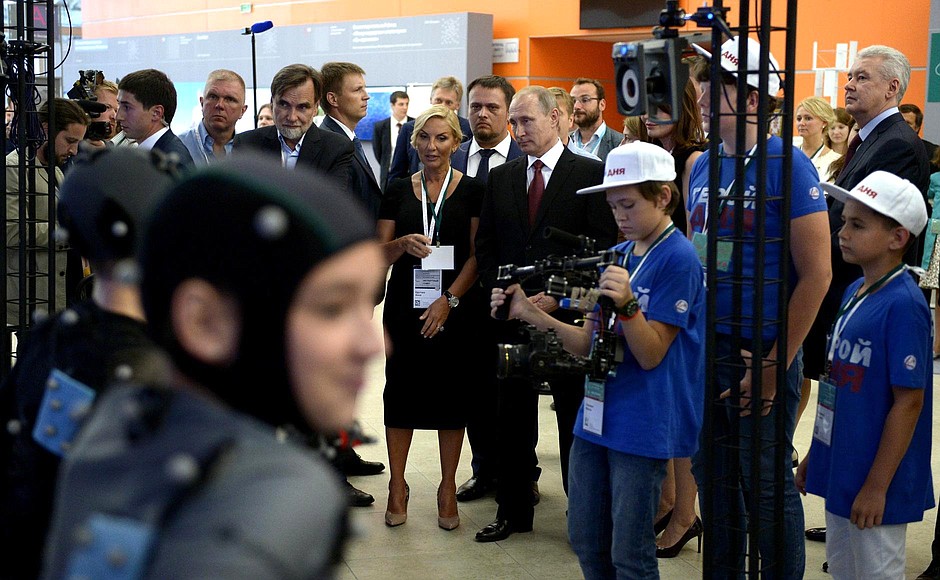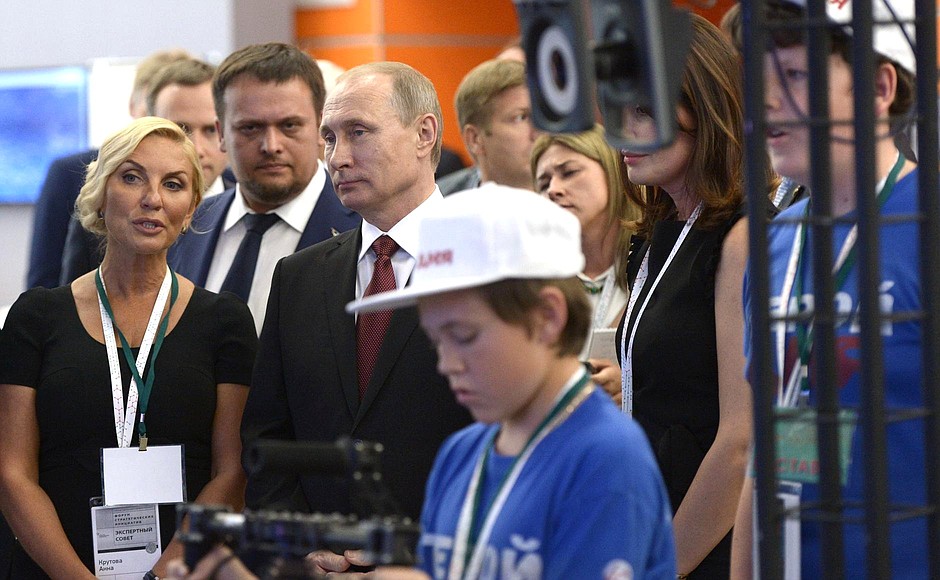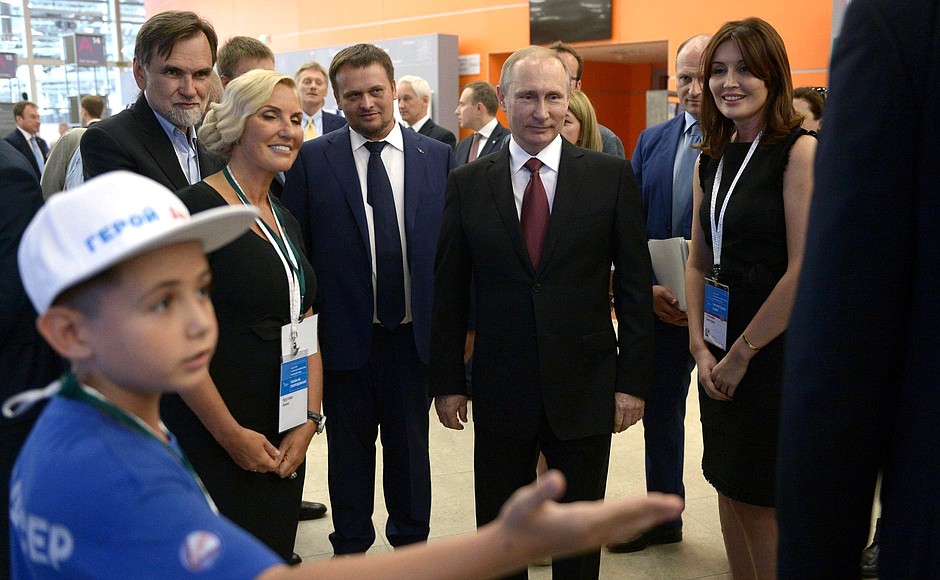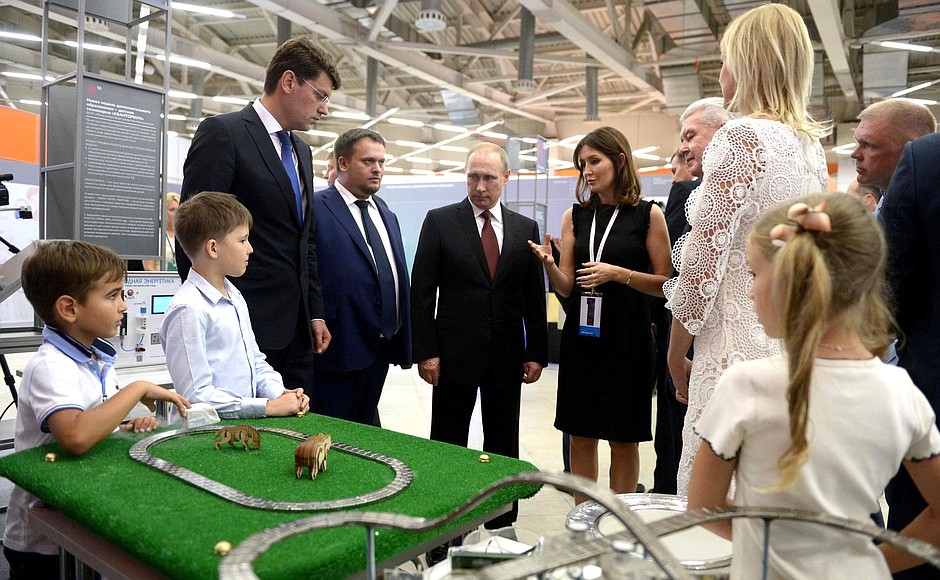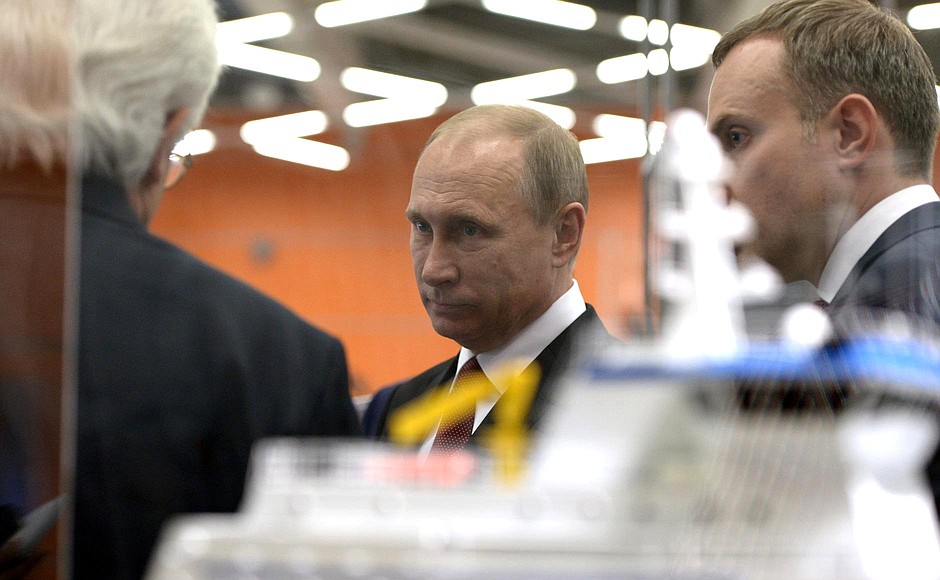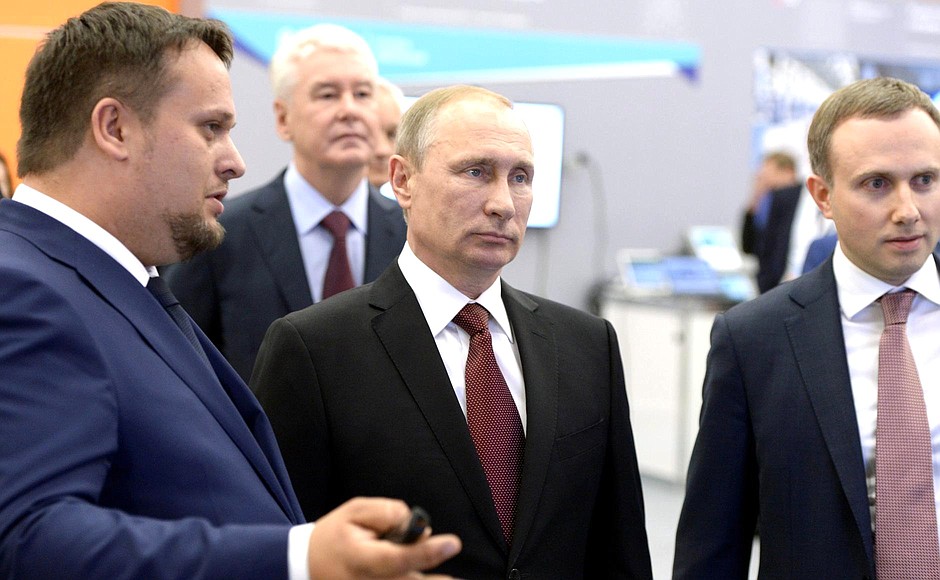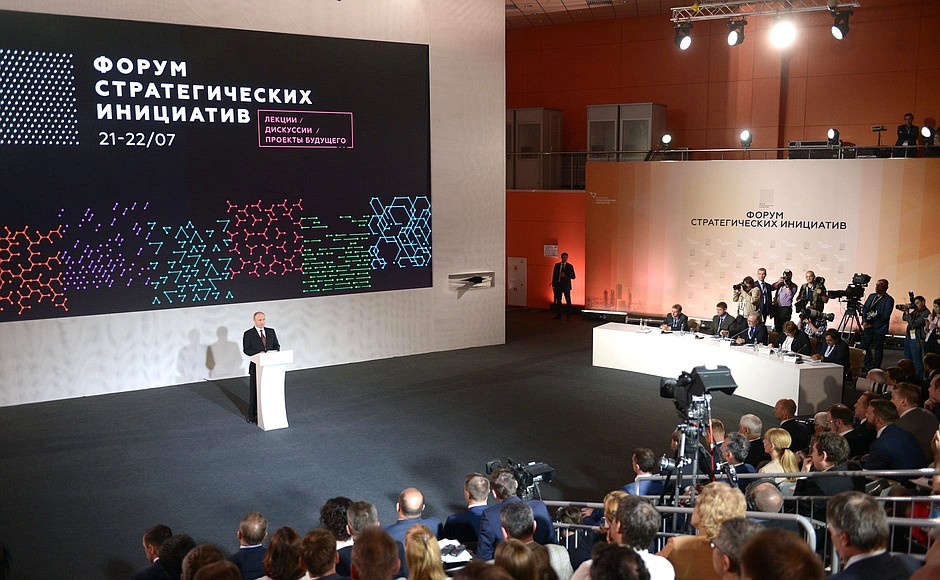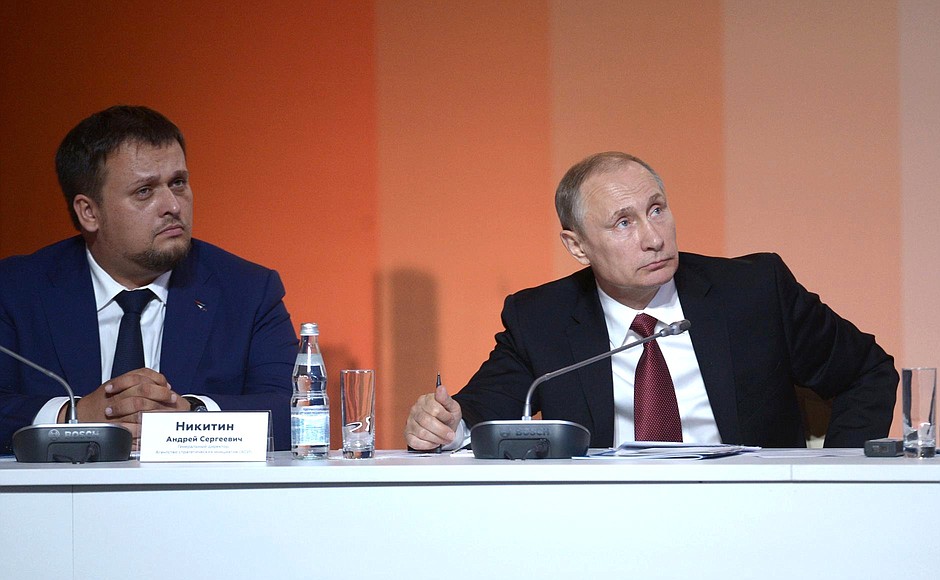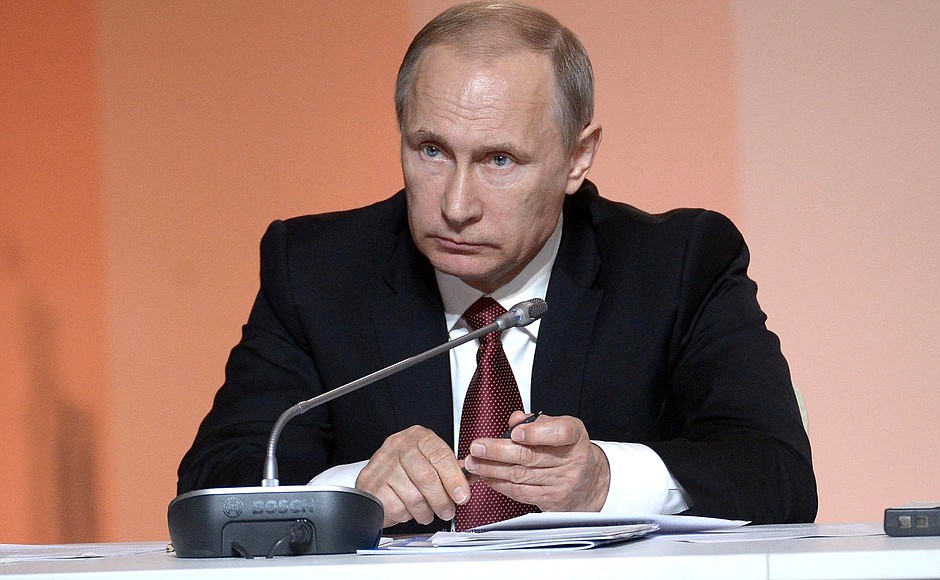The President also visited an exhibition presenting projects that have received ASI support over various years, in particular, new developments in medicine, communications, transport, housing and utilities, agriculture, continued and vocational education, and creating a comfortable environment for people with health problems.
The ASI Strategic Initiatives Forum is taking place on July 21–22 at VDNKh in Moscow, with a programme that includes discussing a long-term socioeconomic development concept for Russia and exchanging experience with best developments and best practice in public management, technology and business. The National Technology Initiative’s draft strategy through to 2035 was also presented at the forum.
The Agency for Strategic Initiatives to Promote New Projects (ASI) autonomous non-profit organisation was established in 2011 at Mr Putin’s initiative. Its tasks include supporting promising medium-sized business projects of social importance, improving the business climate, and assisting development of young managers and professional management in the social sector.
* * *
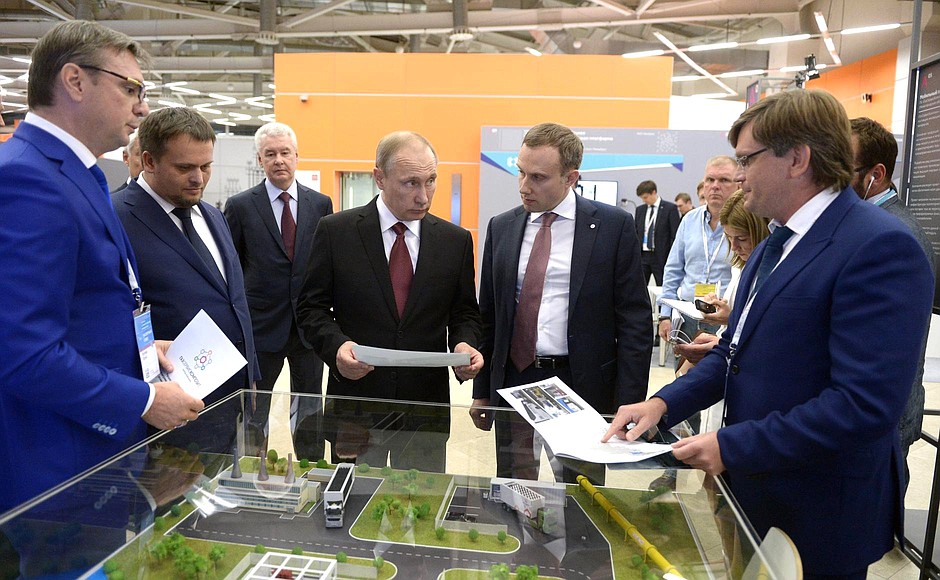
Speech at a meeting of the Agency for Strategic Initiatives Expert Council
President of Russia Vladimir Putin: Good afternoon, friends,
It was exactly five years ago now that the Agency for Strategic Initiatives Expert Council held its first meeting. If I recall correctly, we met five years ago somewhere around July 27.
ASI was created to provide a platform for business community members and representatives of civil society to come with their problems and projects, and to support all who want to engage in constructive work, achieve success and carry out their plans and ideas.
As you recall, an open application process was announced for candidates to fill ASI’s senior posts. Many people back then, myself included, I must confess, had the temptation to put prominent specialists with solid lists of achievements at the agency’s head.
But I think we took the right decision in holding this open application process and choosing those who head ASI today. We have just looked around the exhibition and seen some of the initiatives already carried out. ASI has supported nearly 200 projects over these five years.
I know that the leaders of these projects are here today, and so are many people who worked with ASI in various areas. I congratulate you all on the agency’s 5th anniversary and I thank you for your work. I thank you for your boldness, persistence, and sincere desire to benefit our country. Let me say directly that you have all achieved some good results. The agency began with helping concrete projects, often small projects, in various regions, and this gave it a cross-section of all of the systemic issues that business encounters on a daily basis.
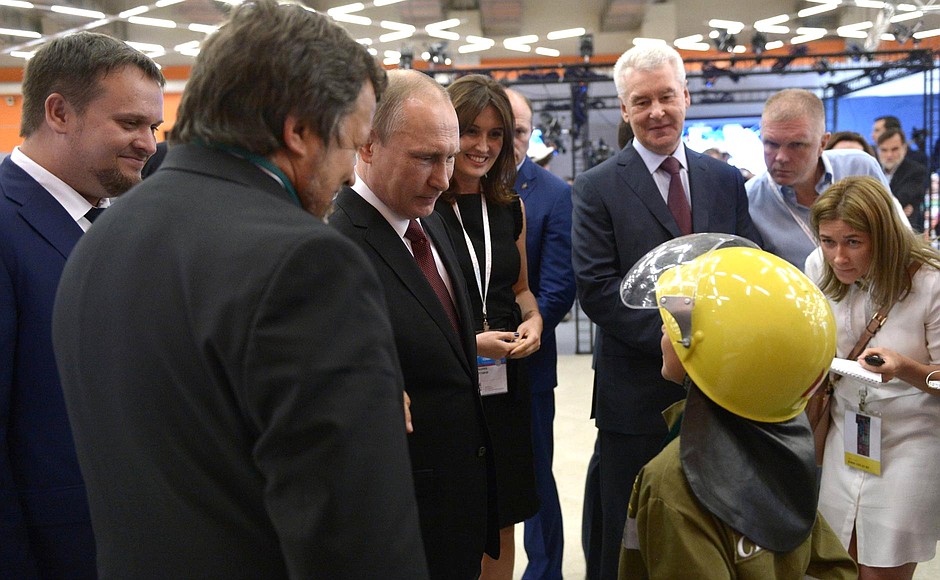
The National Entrepreneurial Initiative’s result was a significant reduction in administrative barriers, less red tape, more common sense and clear and transparent procedures. True, we see that here, as in the law-making process in general, hundreds of thousands of people think about what to put in the laws, and then millions of people think about how to get around them, and the latter group usually has more success.
We heard about electronic signatures today. There is seemingly nothing simpler than to have an electronic signature instead of stacks of documents. But it turns out we need five electronic signatures. The bureaucrats also show limitless creativity, and this means that we must reflect not only on how to make it simpler to conduct business activity, but also how to constantly monitor the situation. I hope that the National Investment Climate Rating you have launched will give a big boost to bringing about a quality improvement in conditions for doing business in the Russian regions.
The agency has also taken a big step towards forming a modern system for training human resources for industry and the economy. You proposed organising championships in the different trades on the basis of the best international standards. The Young Professionals movement is gradually spreading across the entire country, and, as we know, Kazan will host the international championship in 2019.
Human resources, education and the business climate are all crucial aspects of Russia’s global competitiveness. As you work in these areas, it is essential to look at not just the immediate situation but also far into the future. The National Technology Initiative has started making bold new ideas a reality and forming the conditions for Russia’s leadership on markets of the future. You have already drawn in many people, especially young people, who are reflecting on the next technological breakthroughs.
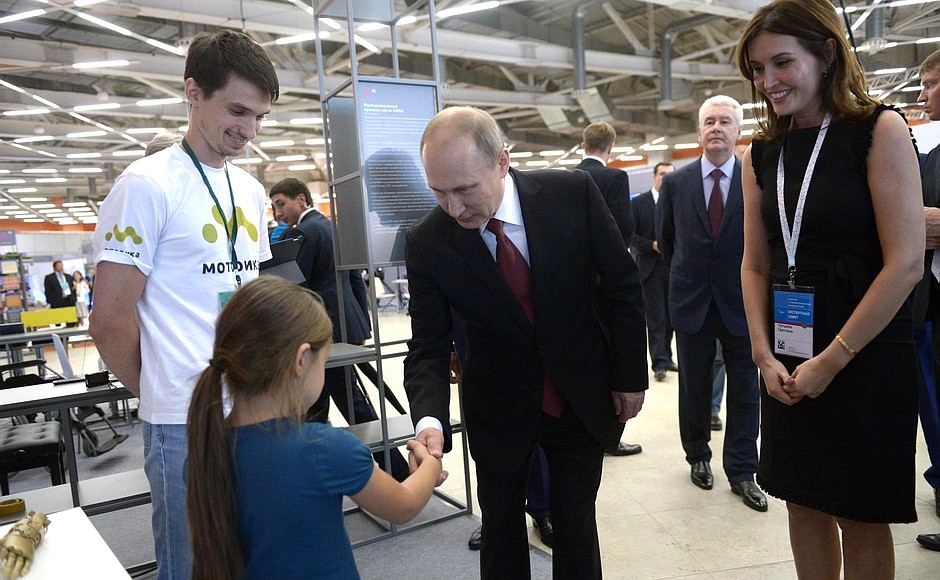
I want to stress the point that Russia’s success over the next three decades will depend in large part on the knowledge and skills we impart to young people today. Entire regions are working together with you to put together innovative plans for their development. The Acting Governor of the Tula Region told us today that his region already has a [development] plan through to 2035 and will coordinate it with the Agency for Strategic Initiatives. This is very good to hear. I know that people in other regions are also working hard.
I think we also need to carry out large-scale, systemic educational development programmes for children too, above all those who will work and develop the country over the coming decades. I ask you to reflect on this and make this one of your priorities too.
As far as the social sector goes, I particularly want to mention your initiative to establish a philanthropic fund for supporting deaf-blind people. You have shown an example of compassion and solidarity with people who very much need our help and support. I hope that you will continue to assist projects with big moral significance and will attract civil society specialists and volunteers. Their energy and active participation will help to improve the social climate and consolidate our society’s unity in general. I looked at the projects today and saw that there are indeed many good projects that have already been carried out and others that are still to go ahead.
Friends, I have named concrete areas in which you have achieved substantial results, but much of what you have been doing over these years goes beyond the scope of individual projects, even big ones. You have succeeded in setting a new dynamic for the work of state public institutions.
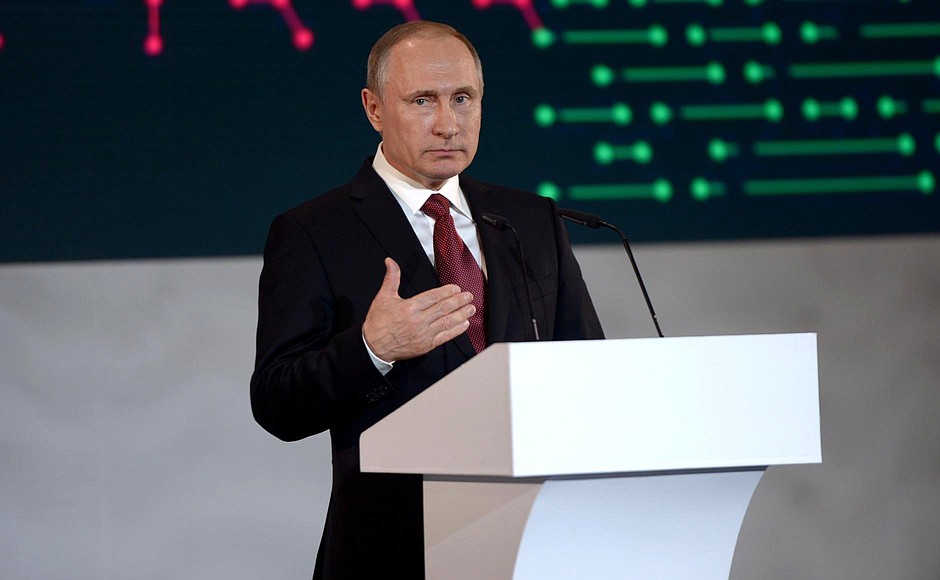
Many officials in the ministries, in the regions, as I mentioned just now, and in local government, have started changing their approach to goal-setting, decision-making and human resources selection. It is important that more and more people who can initiate needed transformations in cities, small towns, or entire regions come to work in regional and local government bodies. Many of these people have taken part in various ASI projects and programmes.
You have formed a community of talented and bold professionals motivated by a desire to benefit our country. This is a club of leaders, a group of experts, businesspeople and civil society activists, tens of thousands of involved citizens. Most important, probably, is that you have inspired many others around you to seek positive change. We must all now work to ensure that these positive changes cannot be reversed.
Once more, I congratulate you on your 5th anniversary and I wish you success.
<…>
Following the meeting, the Expert Council of the Agency for StrategicInitiatives (ASI) approved five projects seeking ASI support.
The project “Mentors: Not Close but Together!” is aimed at helping children in difficult circumstances. Among the volunteer mentors are representatives of government, business, culture and sports.
Another project, the Etnomir ethnographic park in the Kaluga Region has had 1.5 million visitors in the decade since it opened. The park plans to expand and increase attendance up to 10 million people a year.
ASI also supported the youth project Pioneer-M. Based out of Sevastopol State University, students are given the opportunity to work on the construction of a research vessel and marine mobile labs.
The project “Introduction of Technology for Monitoring Territory with Drones” is aimed at expanding technological capabilities for cartography, construction and agriculture.
Peter the Great Polytechnical University of St Petersburg presented the project “Factories of the Future.” The factories are venues for digital designing and modelling of next generation products in the auto industry, ship building, helicopter construction etc.
<…>
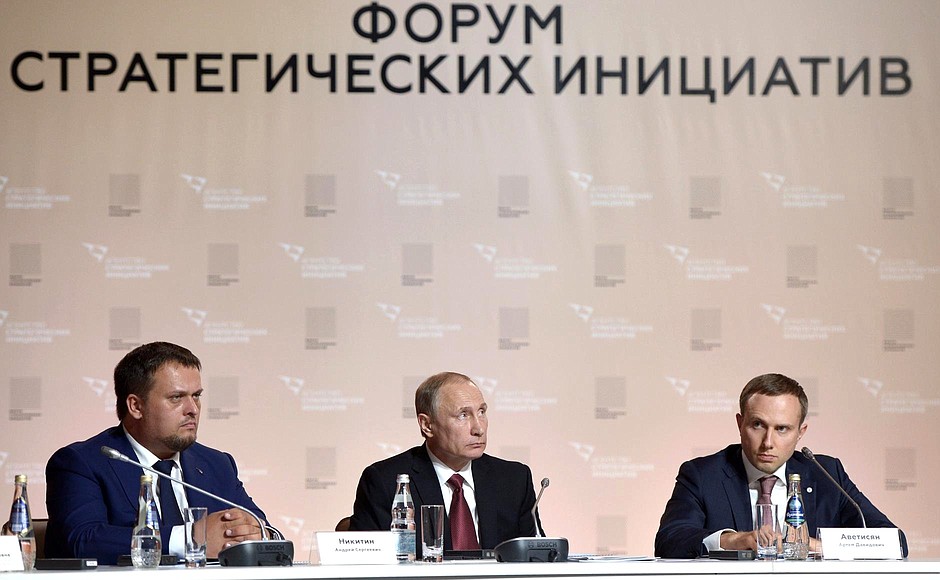
Vladimir Putin: I don’t have any remarks – just one wish: that you keep up the pace and quality of your work. I think we will all agree that the ASI project was a success and I am very glad about this.
We have really managed to reinvigorate the work of administrative bodies and create a new venue for their cooperation with the business community.
There is a noticeable positive change in the cooperation between government bodies and civil society, particularly the business community, and I am very happy about this, all the more so as there are concrete results.
Keep it up! Thank you very much.
